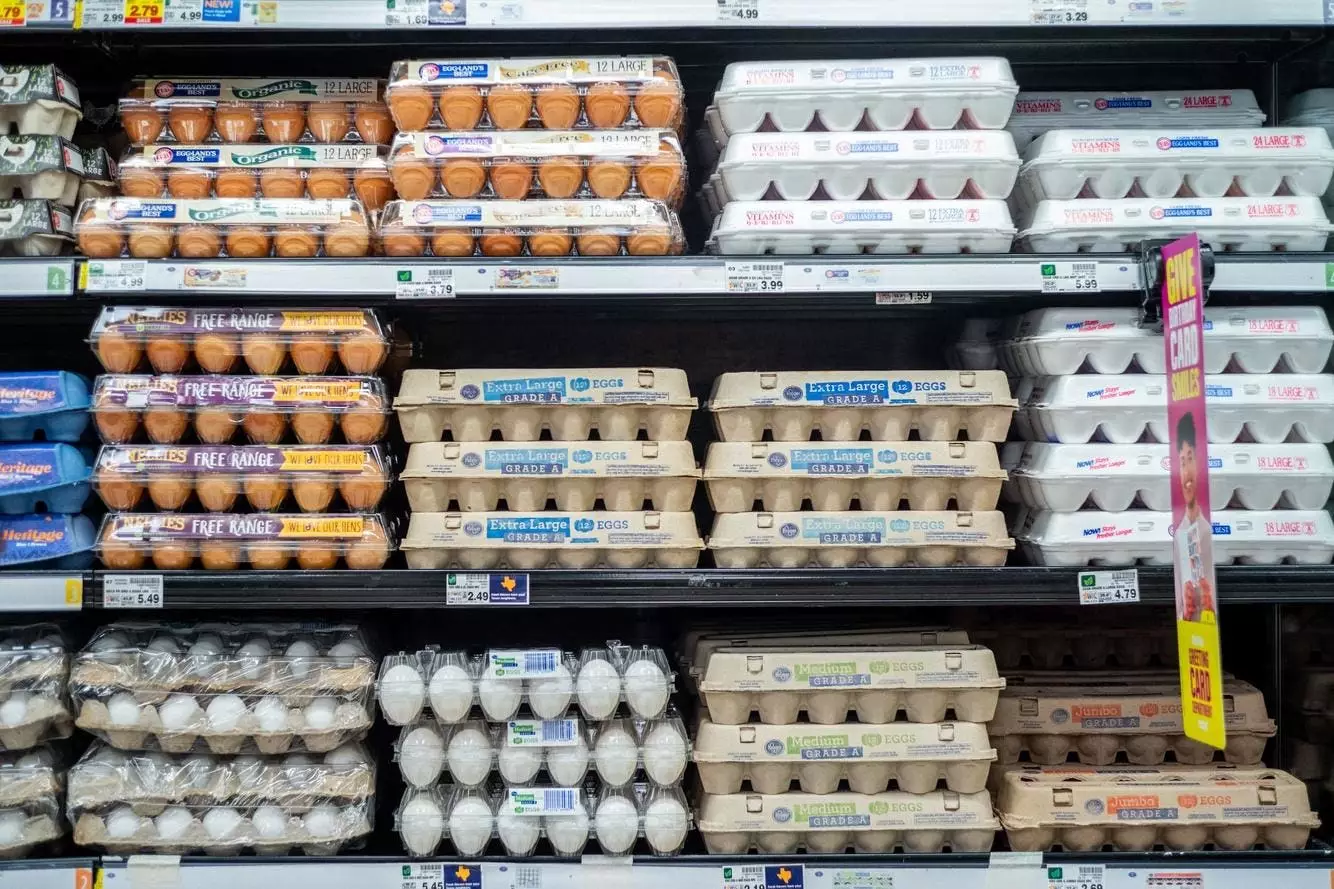Eggs have historically enjoyed a revered status as a fundamental food item in American households. They symbolize affordability, versatility, and nourishment, providing an enriching source of protein at a low cost. From breakfast staples like scrambled eggs and omelets to baked goods and enriching sauces, eggs have woven themselves into the fabric of countless culinary traditions. As the economy changes and prices fluctuate, however, the perception and experience surrounding this once-simple commodity are undergoing dramatic transformations. As we step into 2025, the implications of inflated prices and dwindling availability are becoming increasingly evident.
Recent reports, including the Consumer Price Index (CPI), highlight a staggering 53% increase in egg prices compared to the previous year. This spike is forcing consumers to reacquaint themselves with budgeting strategies and reconsider their grocery lists. The crunch felt at the grocery store goes beyond momentary inconveniences; it reflects a new reality where financial barriers push many shoppers to adjust their consumption habits radically. Many are opting for off-brand options or bulk purchases to counter the rising costs, while others are entirely forgoing eggs, turning instead to alternatives like oatmeal or various plant-based substitutes.
The rising prices of eggs have sparked a notable cultural shift, redefining what it means to engage with food. In a society where convenience often reigns supreme, some individuals are adapting by seeking takeout or non-egg breakfast items. The changing landscape is reshaping not just purchasing patterns but also broader food choices and rituals. The value placed on eggs is evolving; once considered a basic ingredient, they are increasingly seen as premium products. This shift raises the question: as prices continue to climb, will we witness the transformation of eggs into a luxury item?
Consumer responses to inflationary pressures are far from uniform. For some, escalating costs lead to careful reconsideration. According to insights from Numerator, a significant 55% of egg buyers reported frequent stock shortages at local stores. The inability to find eggs has catalyzed a deeper exploration of dietary preferences, with shoppers contemplating their relationship with food and its conceptual worth. Notably, younger generations—particularly Millennials and Gen Z—exhibit a strong willingness to pay more for high-quality eggs, viewing them as essential investments in their diets. Additionally, certain demographics, such as urban residents and Hispanic shoppers, demonstrate particular resilience, often willing to spend significantly more per dozen.
The shift in consumer behavior extends beyond cost; it encompasses evolving values surrounding food sources and production practices. Heightened awareness regarding the origins of food continues to guide purchasing decisions, pushing many to pursue organic, free-range, or locally sourced eggs, even amid economic challenges. The lens through which consumers view eggs has broadened to encompass notions of sustainability and ethical farming practices. As a result, even amidst soaring prices, there is a faction of the population that prioritizes quality over affordability, emphasizing the importance of making intentional food choices.
This evolving landscape forebodes significant changes on the horizon for breakfast and beyond. As traditional paradigms dissolve, we may witness an increase in demand for alternative protein sources and eggless recipes becoming more mainstream. The market may also continue to see a rise in sales of premium egg varieties, enticing a consumer base drawn to potential nutritional advantages and ethical considerations. If the current trajectory holds, grocery shoppers might need to adjust more than just their grocery lists; they may need to fundamentally shift how they engage with food, prioritizing resourcefulness in the face of dwindling availability and rising costs.
As eggs navigate this multifaceted crisis, their status in American kitchens is poised for enduring change. Whether viewed as an economic inconvenience or a quality investment, the intricate interplay between cost, availability, and consumer values is redefining the relationship between Americans and a food item once taken for granted. The way we buy, prepare, and think about eggs is not only indicative of shifting times but also symbolizes a broader reflection on food’s role in our lives. As we move forward, the cultural reimagining of eggs may serve as a microcosm of how we will approach food, nourishment, and the sustainability of our food systems in an ever-changing economic landscape.


Leave a Reply